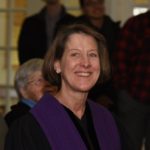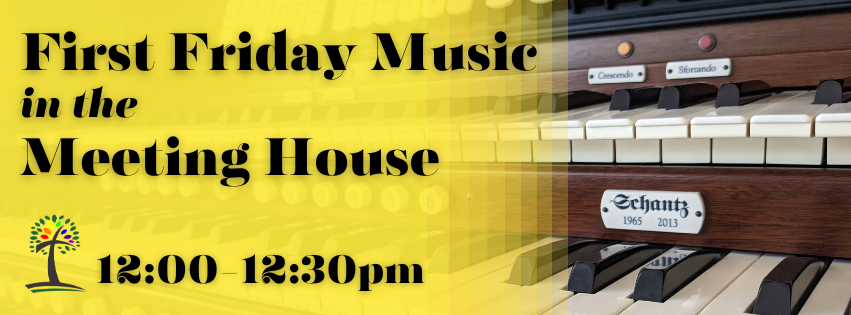
January 15, 2018
“Who Are You Following?” ~ Sermon for January 14, 2018
Our New Testament reading this morning places us in John’s account of Jesus’ early days of ministry.
Jesus is gathering followers and calling disciples.
Hear now a reading from John 1:43-51.
Please pray with me: O God, the source of eternal light: Shed forth your unending day upon all of us who watch for you, that our lips may praise you, our lives may bless you, and our worship may give you glory; through Jesus Christ our Lord.
May the words of my mouth and the meditations of my heart be acceptable to you, O Lord, my rock and my redeemer. Amen.
Sermon
“Speak, Lord, for your servant is listening.”
So what do you do?
You are lying in your bed at night and you hear a voice calling you.
Do you pull the covers up over your head?
Do you stare into the darkness and try to discern if someone is in your room?
Do you get up and wander from room to room seeking the source of the voice?
Could you possibly lay still and listen, respond, converse?
It seems so absurd, but the biblical stories of God’s call to his prophets and disciples almost always go like this.
God calls.
The person ignores the call or protests the call.
God calls again.
The person listens and their life is changed forever.
We start with Abraham’s call and we continue all the way through the Old Testament kings and leaders, the prophets and then in the New Testament we find Jesus calling his followers – but something has changed.
They do not resist or defer.
They simply follow.
Perhaps it is because they can see him.
Maybe being in the presence of Jesus was something so unlike anything Nathaniel or Philip had experienced before that they were willing to walk away from their lives and follow this man.
But what about poor little Samuel in today’s Hebrew scripture reading.
Now Samuel’s story is a touching one.
His mother, Hannah, had prayed fervently for a son.
Her husband’s other wife was able to produce several children and used to taunt Hannah.
Hannah made a deal with God, via Eli – the senior priest.
If God would open her womb and give her a son she would turn him over to Eli to be raised as a Nazerine – a servant of the church.
Well, Hannah’s prayers were heard and she gave birth to Samuel.
She kept him with her only until he was weaned and then fulfilled her promise and delivered him to Eli.
Samuel grew up in the church amidst the dysfunctional family of Eli.
And now, maybe he is eleven or twelve and he hears a voice in the night calling.
He assumes that it is his mentor, Eli, and he runs to him.
After a few times, Eli recognizes that it is God calling Samuel and he encourages him to respond,
“Speak, Lord, for your servant is listening.”
Samuel gets a message that is difficult to deliver.
God is not pleased with Eli’s family and young Samuel is to deliver the verdict.
There is much at risk here for Samuel.
Eli, as his guardian had the power to punish him, cast him out of the house, even kill him if it seemed warranted.
Samuel must decide, by himself, how to respond to God’s message.
He can keep it to himself, or he can deliver it to Eli.
He does deliver it and sets precedence to speak the truth to power for the rest of his life.
Anthony Robinson posed this question about Samuel’s experience: “Are those called to prophetic ministry at least sometimes called to announce and bring judgment on the very people that have nurtured them?”
Calvin said, “Judgment begins with the house and people of God.”
True prophets challenge their own.
This means that for Samuel to say, “Speak Lord, your servant is listening,” is very costly.
Just as the first disciples will leave everything behind to follow Jesus, Samuel’s assent to hearing God’s word and call means the double edged sword of God’s word will cleave Samuel’s own life, into before and after.”
Samuel, a little boy, stands tall as an example for the rest of us.
I fear that we have developed a sense of our life being our own.
We believe that everything we have belongs to us.
We forget that God has bestowed our gifts upon us.
The psalmist reminds us that it was God who knit us in our mother’s womb.”
God has been there shaping us since the beginning.
We belong to God.
Sometimes we forget that.
How often do we hear a call, see a vision, have a dream that we silence for fear of how the people around us will respond.
Tomorrow we celebrate the birthday of Rev. Dr. Martin Luther King.
In his remarkable book, Martin and Malcolm and America: A Dream or a Nightmare, Thelogian James Cone captures Martin’s struggle with his call.
Martin’s personal notes included a reflection on his involvement with the civil rights movement. He said:
“What should I do? I have a wife and a young family. The dangers of speaking out against racism are real and often end tragically.
This is my first pastorate in a silk-stocking Baptist church that caters to black middle-class values.
What will they think if I come in and develop a reputation as a rabble-rouser?
The members of Dexter Avenue are the black bourgeois who believe that black people can make it if they “study hard, work hard, save their money and stay out of trouble.”
Martin, like Samuel, had a message to deliver that was not going to be well received.
He knew the cost. He had to wrestle with this call.
On April 3, 1968, Martin Luther King, Jr., went to Memphis, Tennessee, in support of a strike for higher wages and better working conditions by black sanitary public works employees.
That day he delivered his “I’ve Been to the Mountaintop” speech, in which he talked about threats to his life. He said:
“Like anybody, I would like to live a long life.
Longevity has its place.
But I’m not concerned about that now.
I just want to do God’s will.
And He’s allowed me to go up to the mountain.
And I’ve looked over.
And I’ve seen the promised land.
I may not get there with you.
But I want you to know tonight, that we, as a people, will get to the promised land.
And I’m happy, tonight. I’m not worried about anything.
I’m not fearing any man.
Mine eyes have seen the glory of the coming of the Lord.”
The next day, April 4, 1968, at 6:01 p.m., King was shot in the head while standing on the second floor balcony of the Lorraine Motel in Memphis, surrounded by friends and associates.
He was 39 years old.
Martin Luther King described himself as a churchman.
He was “the son of a Baptist preacher, the grandson of a Baptist preacher, and the great grandson of a Baptist preacher.
As an adult, there was never a time when he was not a pastor — at Dexter Avenue Baptist Church in Montgomery, then Ebenezer Baptist Church in Atlanta.
He stated correctly, “the Church is my life and I have given my life to the Church.”
Most of his great writings and those words that we remember are based in scripture.
We honor this man because he lived a life deeply rooted in his faith in God, his belief that scripture could guide us in our lives and because he made a difference.
He had the courage to speak truth to power, just like little Samuel, and he changed the world.
This is what we are called to do in our daily lives.
Of course, we do not have to be Martin Luther King but we can pay attention to the prophetic voices in our midst.
We can listen with open hearts and open minds when someone is calling attention to an injustice.
We can model behavior for our children that demonstrates deeply held values of honesty, generosity, kindness and trust.
God is not expecting you to be a civil rights leader, or a world leader.
God is expecting you to use all of your gifts and talents, all of the resources available to you, to answer God’s call.
God expects you to listen.
God expects you to respond.
God expects you to act.
God expects you to go out into this world and spread kindness, hope and love in the name of Jesus Christ.
This is never easy.
Sometimes it seems that our world is simply awash with problems.
Famine, hatred, and violence permeate the news.
Where do we start? What are we to do?
Daniel Ingram suggests that we turn to Paul’s letter to the Romans for a word of hope: “We know that the whole creation has been groaning in labor pains until now; and not only the creation, but we ourselves, who have the first fruits of the Spirit, groan inwardly while we wait for adoption, the redemption of our bodies. For in hope we were saved. Now hope that is seen is not hope. For who hopes for what is seen? But if we hope for what we do not see, we wait for it with patience.”
Martin Luther King knew this waiting in hope.
He knew what it was like to trust that God was with him even when the world’s problems seemed overwhelming.
Hope is the trust that God will fulfill God’s promises to us in a way that leads us to true freedom.
The person of hope lives in the moment with the knowledge and trust that all of life is in God’s hands.
All the great spiritual leaders in history were people who lived with a promise in their hearts that guided them toward the future without the need to know exactly what it would look like.
Let’s live with hope.
Let’s live without fear.
Let’s follow people with integrity.
We have to have a dream and we have to work to make that dream come true.
This week, I encourage you to listen for God’s call.
Maybe it will be a voice, maybe a dream, maybe the words of a friend.
Perhaps you will read something that triggers in you an idea of something new you might try.
Be brave.
Hannah gave up her baby.
Samuel gave up his childhood.
Philip and Nathaniel gave up their livelihood.
Jesus and Martin Luther King gave their lives.
What are you willing to give?
Let us pray.
Pastoral Prayer
Dear God, you call us beloved. Help us to live up to that name.
Grant us the grace to hear and heed your call.
Be with us as we struggle to discern what you want us to do.
Give us courage and wisdom to transform our world through acts of kindness, justice and love.
Help us to be as forgiving as you are and to live our lives in the brilliant light you provide.
God of hope, we are overwhelmed by the events in our world yet we know you feel it more deeply than we can comprehend.
Usher us from silence to hope.
Help us to bring your comfort to the rest of the world.
Hear our prayers this day for those whom we love.
For those who are sick we pray for healing.
For those who mourn, we pray for comfort.
For those whose lives are affected by injustice, poverty, violence, and hatred let our prayers and our lives bring change.
O God, let justice roll down like waters as we turn our hearts to you in silent prayer….

